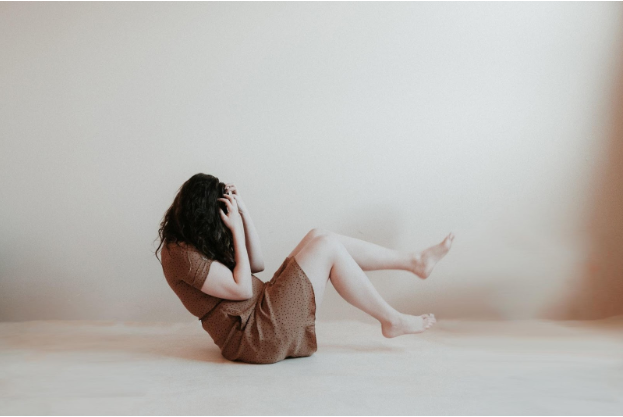Little bit of nostalgia, lots of awe and oodles of...
Read MoreWhat Does An Anxiety Attack Feel Like?


Anxiety is a response to danger or threat. The body’s fight or flight response has kept our species alive for thousands of years. It was a necessary process that helped early humans hunt, survive, and reproduce. When the body’s fight or flight response activates, our adrenal glands pump much-needed hormones into our body that sharpen our senses, our heart rate goes up, and there’s an increase in the breath rate. A fight or flight mode would be a great response if we were always in a state of danger. We’re no longer living in the jungles, in the primitive age with the undomesticated animals and warring tribes. Our body’s fight or flight response today comes in the form of agony and anxiety.
Instead of wild animals, we face stress from our relationships, jobs, or avoidable health issues. The inherent need for wanting things perfect, living a utopian life, being loved by all, inability to face harsh realities are the new age stress triggers. The sympathetic nervous system that helped us hunt mammoths or avoid arrows is now bothered about meeting deadlines or having a meltdown over an argument.
An anxiety attack is the activation of this body’s stress response, often when nothing is happening. Having multiple anxiety attacks can lead to a diagnosis of an anxiety disorder. An anxiety disorder where there is constant feeling of fear or some form of tension that is strong enough to interfere in your daily activities can be debilitating and reduce one’s quality of life.
Anxiety attacks involve more than usual worries or uneasiness. When you suffer from anxiety attacks, the sympathetic nervous system is overloaded can feel like you’re in a perpetual state of distress. Anxiety experiences vary from mild restlessness to extreme panic. You frequently feel irritable or imagine some impending doom or have problems sleeping at night. Constant headaches, rapid, shallow breathing or upset stomach is also attributed to be the result of anxiety attacks. Sensations such as dizziness, spots and blurring of the eyes can be a side effect of extreme anxiousness.
When the parasympathetic nervous system kicks in to calm down the body’s sympathetic nervous system, it leaves anxiety-sufferers in a state of fatigue. The body tires itself after being in a state of hyperarousal. If this happens often, the body seems to be in a never ending fatigue state. The body feels exhausted and the mind is taxed as well. The brain works overtime to keep the body in an arousal state that it needs time to recover.
This state of dullness can lead to poor decision-making that can exacerbate anxiety and send someone in a seemingly endless anxiety cycle. When someone suffers from post-anxiety fatigue, they take naps that can disrupt their sleep routine. They also form a reliance on stimulants like caffeine. Too much coffee or dependability on energy drinks can cause heart palpitations, making anxiety worse, leading to more insomnia and loss of sleep.
Anxiety attacks can get in the way of daily life. If you are suffering from constant anxiety attacks, it might be time to seek professional help or look into alternative anxiety-relief treatments.
Please share my post
My recent posts
The Yellow Tumbler
A short fictional story “The woods,” she said, looking at...
Read More25 Things No One Tells a New Mom But She Should Absolutely Know
Blog Conversations Life Musings Parenting Reviews Wellness About Me X...
Read MoreDo You Have A Happy Corner In Your Home?
Blog Conversations Life Musings Parenting Reviews Wellness About Me X...
Read MoreUseful Links
Subscribe Now
Don’t miss our future updates! Get Subscribed Today!





